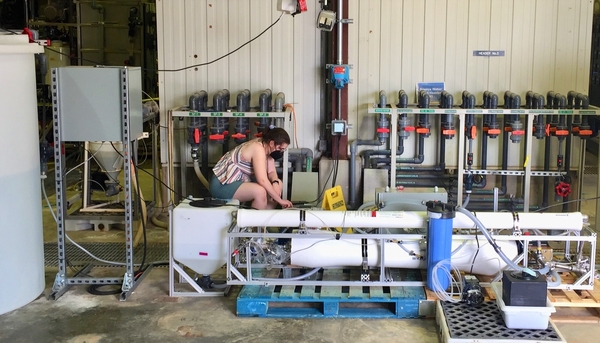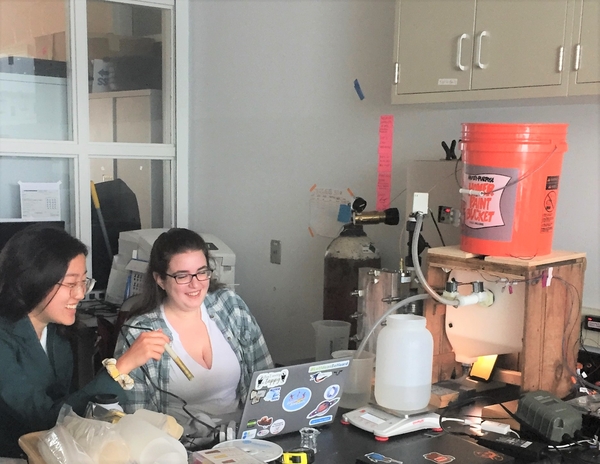Water recovery from reverse osmosis (RO) brine
As finalists in the US Bureau of Reclamation's More Water Less Concentrate challenge, our team (with Harmony Water, Coast Guard Academy, and MIT) has developed a pilot-scale prototype system at Olin to recover additional water from scaling-prone RO concentrate streams. By treating these concentrates in short cycles, we have found that RO membranes can be used to reduce concentrate volume and produce drinkable water for less energy than seawater desalination and without membrane scaling. In a one-week field test, the system demonstrated more than 80% water recovery from Yuma Desalting Plant RO brine.
Inorganic scaling behavior and energy efficiency of batch RO
When pure water is extracted from saline water, the concentration of the remaining dissolved material raises the risk of crystallization (scaling) on the membranes. With funding from the US Bureau of Reclamation and in partnership with Purdue University, we are developing an energy-efficient solar-thermal water desalination technology by building and testing a cyclical reverse osmosis (RO) desalination system with scaling-prone feedwater.
Thermal insulation performance of quilts and other textile reuse methods
Used and unsold clothing results in waste, pollution, and economic injustice, particularly in the developing world. At the same time, the threat and effects of climate change drive the need for passive and low-energy heating and cooling methods. We aim to find out how clothing waste can be repurposed to provide insulation and passive thermal control for people and buildings. We are measuring the thermal conductivity of traditional methods of repurposing textiles (e.g., quilting, rag crochet, etc.) and using thermal modeling to explain findings. We hope to determine which types of textile reuse are the most effective insulators in order to give used textiles a useful second life and reduce dependence on fossil fuels. We hope to share our message of conservation (of textiles and energy) to a wider audience through the creation of textile art. Learn more in the 2019 Olin summer research video: https://www.youtube.com/watch?v=fzQ_k5Owuaw.
Energy efficiency of potable water reuse
Seawater desalination can help alleviate water scarcity at a cost to our climate. Purifying wastewater into drinking water (potable water reuse) requires less energy than seawater desalination, but desalination is sometimes more easily embraced by the public. We are studying the energy requirements of potable water reuse to make a clear case that municipalities should consider potable water reuse before more energy-intensive seawater desalination. Read our open-access publication here: https://doi.org/10.1016/j.wroa.2021.100126
|



